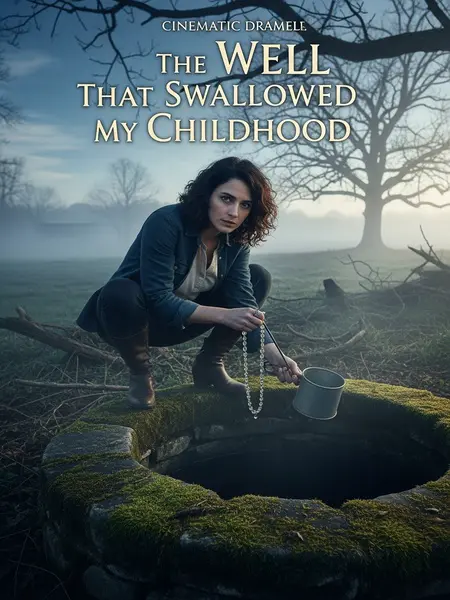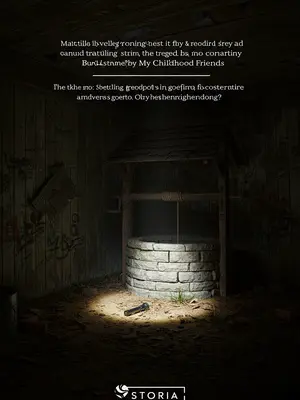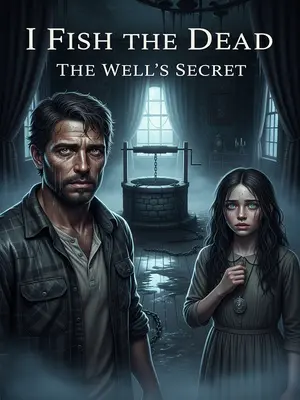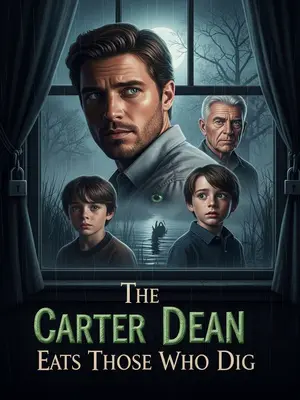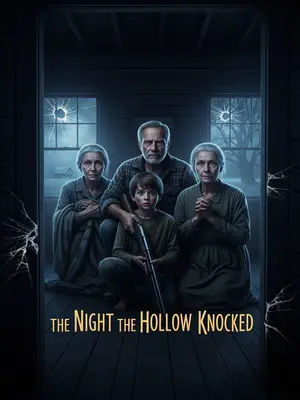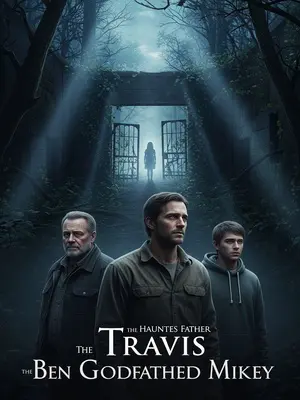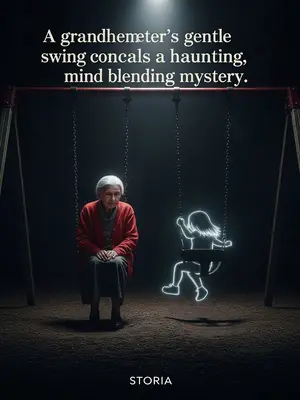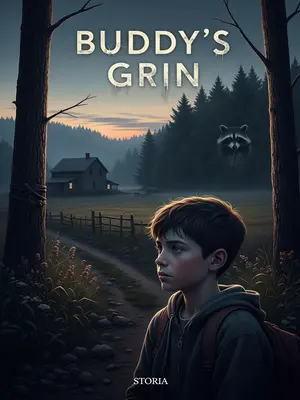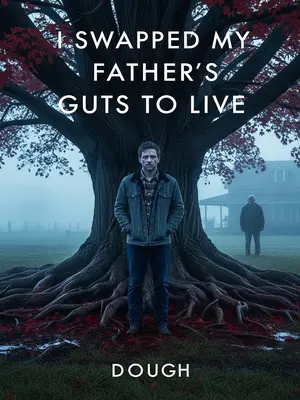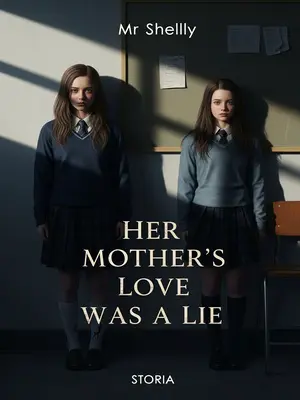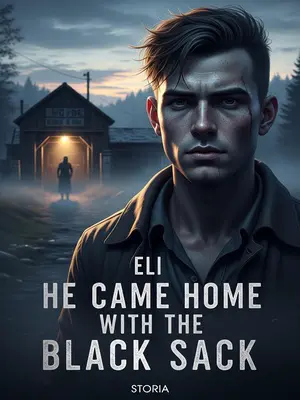Chapter 6: Paula’s Escape
But one woman managed to run.
Even years later, people whispered about her like a ghost. Her name was Paula.
Paula—Sam Dixon’s wife, bought just a year earlier—escaped.
Brave as hell. And she ran while pregnant—eight months along.
Nobody else would have noticed. If it weren’t for Old Frank, Paula probably would have died in silence.
Nobody asked questions. Because everyone thought she had just run away.
He knew everybody’s business. Old Frank was the mailman from the county post office.
No sign of Gary, so Frank checked the backyard.
His stomach turned. The back gate creaked, and Frank stepped into a world that smelled wrong.
It hit him right away—a faint, rotten-cheese smell.
But this one felt off. In one corner of the yard was a huge concrete bin—almost every farmhouse had one for storing wheat or corn.
Nobody would look twice at it. The bin was big enough to hide a car...
Harvest season had just ended; plastic sheeting was stretched tight over the bin and weighed down with bricks.
No doubt about it. The smell was coming from the bin.
He’d smelled death before. Old Frank had been a soldier, seen combat, and knew that stench was definitely not just spoiled food.
He didn’t hesitate. Years of training kicked in, and he marched straight to the station, face grim.
It was Paula. The police came and dug a pregnant woman’s body out of the bin.
Almost ready to give birth. She was at least eight months along.
The sight broke everyone. The body was already badly bloated, but still recognizable—it was Paula.
Not a single call. She’d been missing for seven days, and not one person in her family had called the police.
She looked scared. Paula’s mother-in-law, Mrs. Dixon, kept dodging questions...
Nobody believed her. “Where’s her family?” “Don’t know.”
Her answer was too quick, too rehearsed. “You don’t know?”
After a long silence, Mrs. Dixon finally admitted it. Paula had been bought. The police pressed for a long time before the woman finally admitted, haltingly, that their daughter-in-law had been bought.
She wouldn’t meet anyone’s eyes. Her confession was barely more than a whisper.
Unbelievable. “So you don’t report it because she was bought? If she runs off, that’s just it?”
It made sense to her. There was a twisted logic to her answer...
Nobody cared about the law. “You know it’s illegal, and you still bought her?”
Nothing mattered more. She said it like it was the most obvious thing in the world...
She hated being questioned. The question stung. Mrs. Dixon bristled, her pride wounded.
Linda Quinn. The name everyone feared. “Linda Quinn told us not to call the police...
She ran the whole show. Linda Quinn was Gary’s mother—the one who arranged to buy Paula.
Everyone owed her something. She was a legend—part matchmaker, part villain.
She didn’t see the harm. Her voice was full of admiration, as if Linda had performed a miracle.
But Linda had more power. The way she talked about Linda, you’d think she was talking about the mayor or the preacher.
They were a sight. Under the Dixons’ porch sat three bachelors: Sam, Rick, and Billy, like three crooked fence posts stuck in the yard.
Sam was a gentle giant, more comfortable with cows than people.
Rick barely spoke, always squinting at the world like it was too bright.
Billy was sweet—the kind of guy who’d give you the shirt off his back.
They worried all the time. The old couple watched over their three odd sons, sighing so much that even the big pickle jar on the windowsill couldn’t hold all their worries.
Linda did it every winter. It was a ritual, almost a pilgrimage.
She probably did. People joked that Linda knew more about the town’s secrets than God Himself.
Nobody ever said no to Linda. She had a laugh that could shake the dust from the rafters...
It was all or nothing. She counted every penny, wringing her hands as she eyed the old tractor in the barn.
Christmas was coming. The air was sharp with the scent of pine and woodsmoke.
She looked scared. Her voice was high and sweet, with a hint of mountain twang.
Linda never wasted time. Her words were quick and businesslike, but there was a hard edge to her tone.
Everyone was nervous. She waved her husband over, her voice trembling.
Just another transaction. Linda straightened her coat, gave the girl a quick once-over, and headed for the door, her work done for the day.
It sent a chill down my spine. She flashed a reassuring smile, but her eyes were cold.
They were awkward. The boys hovered nearby, unsure whether to say hello or just stare.
At first, Mrs. Dixon felt sorry for her and didn’t know how to break the news.
She was nervous too. She tried to sound casual, but her voice shook.
She missed her grandma. Her answer was soft, almost shy.
Nobody spoke. There was a long pause. The only sound was the rustle of corn husks and the distant hum of the radio.
She felt sorry for her. Mrs. Dixon sighed and patted her head.
It hit her hard. Her words came out in a rush, and Paula froze, hands trembling.
She looked for a way out. Her voice cracked, panic rising.
Paula was scared. She tried to soften her tone, but the damage was done.
She never stood a chance. She moved fast, but the boys were faster.
It was over. They looked more scared than angry, but they weren’t about to let her go.
Nobody listened. Her voice was raw, desperate.
Paula slumped, defeated. It was a cruel kind of kindness, offering a choice where there really wasn’t one.
He hated this part. He shook his head, sadness etched deep in his features.
They tried to win her over. They brought her little gifts—scarves, apples, a new pair of mittens.
She waited by the window every day. Paula wrote letters home, but never got a reply.
She clung to it. It was a strange bargain, but it gave Paula a sliver of hope.
